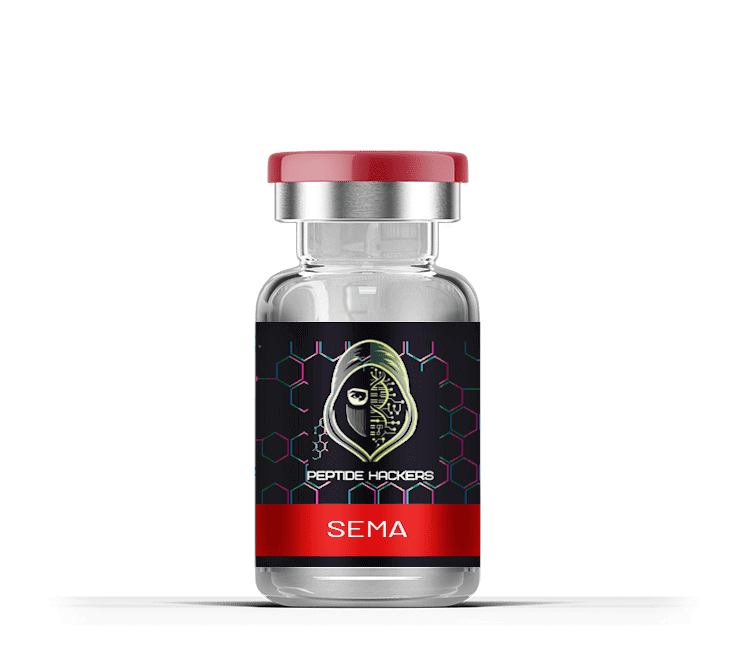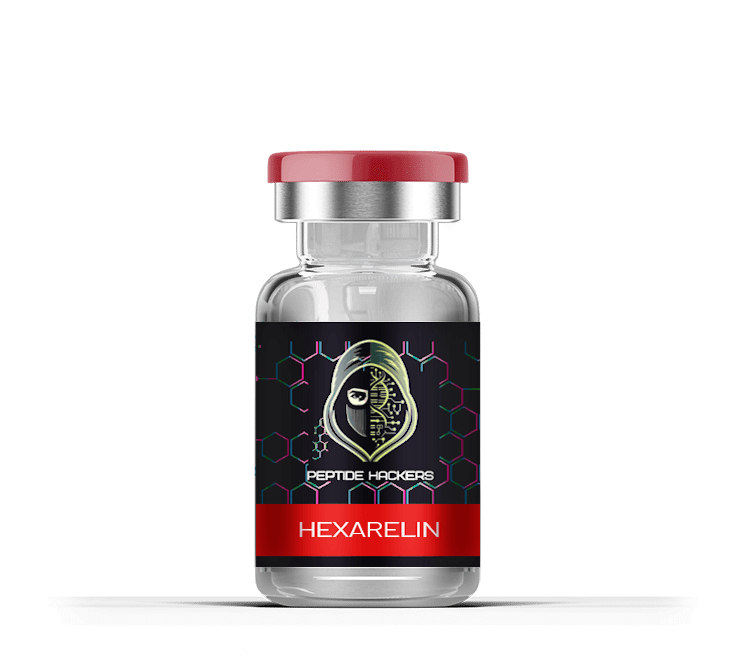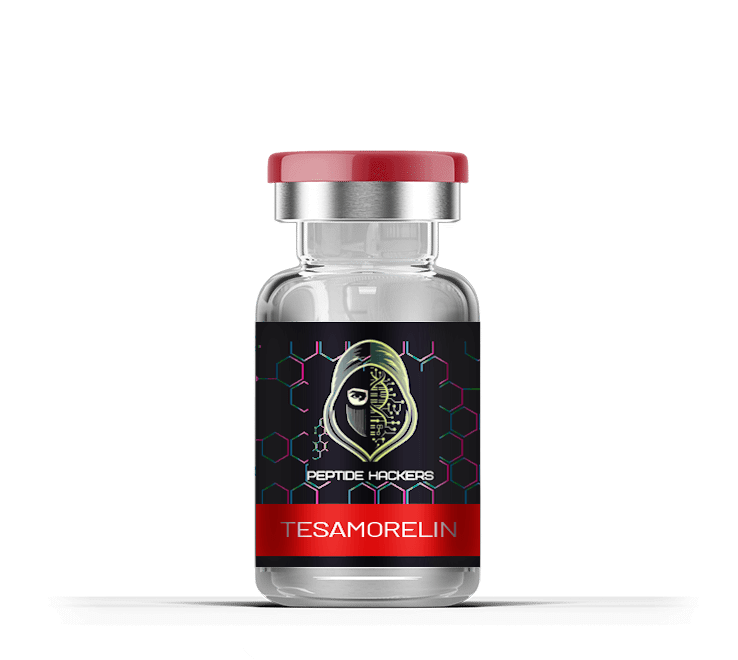Adipotide (TP01) - Research Compound for Laboratory Studies
Adipotide research compound (also known as TP01 and Prohibitin Research Compound) is an investigational research compound that, in animal studies, has been examined for effects on adipose (fat) tissue mechanisms. In contrast to compounds studied for appetite effects, this research compound has been investigated for cellular mechanisms in experimental models. The peptide sequence CKGGRAKDC-GG-D(KLAKLAK)₂ has been studied in laboratory research for adipose tissue mechanisms.
For laboratory research purposes only. Not for human consumption.
Research Information Card (Click to expand)
Sequence: CKGGRAKDC-GG-D(KLAKLAK)₂
Molecular Weight: ~2.5 kDa
Research Target: Prohibitin/ANXA2 in laboratory models
Storage: -20°C (lyophilized) for research
Solubility: Sterile saline or buffer for research
Research Status: Preclinical animal studies only
NOT FOR HUMAN USE
Table of Contents

Key Statistics from Preclinical Animal Studies
Research data from animal studies only. For educational purposes.
Research Mechanism in Laboratory Models
This research compound has been studied in laboratory settings for:
- Binding mechanisms to Prohibitin/ANXA2 proteins in experimental models
- Cellular processes in tissue research models
- Secondary cellular effects in laboratory studies
- Immune system interactions in research animals
For laboratory research purposes only. Not for human use.
This research mechanism is different from appetite or metabolic pathways, working through studied cellular mechanisms in laboratory models.
Adipotide (TP01) is a synthetic compound developed for laboratory research that has been studied for molecular mechanisms in experimental settings.
This preclinical research compound has attracted scientific attention as a tool to explore mechanisms in metabolic research. Research examines cellular processes in laboratory models rather than clinical effects.
Research observations only. For educational purposes. NOT FOR HUMAN USE.

This research compound has been studied without affecting appetite, metabolism, or hormonal pathways in laboratory animals. Research examines cellular architecture in experimental models.
Adipotide research compound acts via pathways distinct from those of other compounds. Research shows no effect on appetite signals or digestive functions in animal studies — it targets specific cellular mechanisms in laboratory models.
For laboratory investigation only. Not for human consumption.
Comparison with Other Research Compounds
| Research Compound | Research Mechanism | Research Effect | Research Observations | Status |
|---|---|---|---|---|
| Adipotide (TP01) | Cellular mechanism research | Tissue effects in research | Renal markers in studies | Research only |
| Semaglutide | GLP-1 research | Appetite research | GI markers in studies | Approved compound |
| Tirzepatide | GLP-1/GIP research | Metabolic research | GI markers in studies | Approved compound |
| Retatrutide | Triple mechanism research | Multiple pathway research | GI markers in studies | Phase 3 research |
Comparative research data only. For educational purposes. NOT FOR HUMAN USE.
Research compounds work via different mechanisms; however TP01 Adipotide research focuses on unique cellular mechanisms. This difference leads to distinct research applications:
- Research Mechanism: Studies cellular processes versus metabolic pathways
- Research Independence: Acts without affecting appetite or metabolism in animal studies
- Research Selectivity: Studied mainly in adipose tissue research models
- Research Onset: Different timeline compared to metabolic compounds
For laboratory research only. Not for human application.
Preclinical Animal Research Data (2011)
A preclinical investigation of research compound Adipotide was carried out in animal models, with the following research observations:
- Body composition changes in animal research models
- MRI-validated tissue changes in research subjects
- Metabolic marker changes in laboratory studies
- No effect in lean control animals in research
- Continued marker changes post-administration in studies
Research data from animal studies only. For educational purposes.
The University of Texas Health Science Center and MD Anderson Cancer Center conducted study published in Science Translational Medicine (2011) examined the effects of Adipotide in non-human primate research models.
Research Study Design
- Species: Diet-induced obese rhesus macaque (Macaca mulatta) research model
- Administration: Subcutaneous injection daily for 28 days in research protocol
- Control: Obese and lean vehicle-treated groups in research
- Evaluation: MRI, metabolic panels, behavioral assessment in research
Research protocol data only. For educational purposes. NOT FOR HUMAN USE.

Research observed no changes in behavior or appetite and documented changes occurred as a result of cellular mechanisms in experimental models.
The study showed selective action of Adipotide compound in obese compared with lean animals in research, indicating differences related to tissue characteristics. After administration, analyses showed marker changes suggesting effects in research models.
For laboratory research only. Not for human consumption.
Laboratory Analysis
Laboratory studies of tissue samples showed:
- Cellular changes in adipose tissue in research
- Typical morphology in research models
- Minimal inflammatory markers in studies
- Maintenance of other tissue structure in research
Research findings only. For educational purposes.
Research Safety Observations in Animal Studies
Renal Observations in Research:
- Creatinine markers in animal studies
- Reversible renal observations in research
- Higher doses correlated with effects in studies
Not Observed in Research:
- Gastrointestinal markers in animal studies
- Behavioral changes in research models
- Hepatic markers in laboratory studies
Research observations only. For educational purposes. NOT FOR HUMAN USE.
Research Protocol Considerations
Animal studies often included:
- NAC in research protocols
- ALA in laboratory studies
- CoQ10 in research models
- Omega 3 in animal studies
Plus hydration and monitoring in research protocols.
Research protocols typically incorporated:
- Baseline Assessment: Pre-administration panels in research
- Surveillance: Serial measurements in laboratory studies
- Dose Optimization: Gradual increases in research protocols
- Hydration Protocols: Proper hydration in animal studies
- Supportive Compounds: Protective agents in research models
Research protocols only. For laboratory investigation. NOT FOR HUMAN USE.

Laboratory Research Applications
Adipotide research exhibits mechanisms with potential applications in preclinical research, including:
Primary Research Applications
- Obesity Research Models: Insights into tissue mechanisms in experimental models
- Metabolic Research: Investigating tissue characteristics in laboratory settings
- Cancer Research: Tissue mechanisms studied in research models
- Tissue Research: Mechanisms of cellular processes in laboratory studies
- Cardiovascular Research: Investigating tissue-related pathways in research
For laboratory investigation only. Not for human consumption.
Current research on the Adipotide compound involves:
- Dose optimization research to reduce observations
- Developing protective strategies in research models
- Combination studies with other research compounds
- Delivery system development for research specificity
- Long-term effect studies in animal research
Research directions only. For educational purposes.
Research Protocol Information
Adipotide (TP01) is a research compound that has been studied in animal models with documented research approaches:
Research Delivery Method
- Route: Subcutaneous administration in animal research
- Frequency: Daily in primate research models
- Duration: 28-day cycles in research studies with monitoring
- Storage: Lyophilized powder at -20°C for research
- Reconstitution: In sterile saline for research purposes
Research parameters only. FOR LABORATORY USE. NOT FOR HUMAN USE.
Research Combination Studies
Laboratory research has explored combinations with:
- AOD-9604: Combined research studies
- GLP-1 Compounds: Combination mechanism research
- Growth Hormone Compounds: Tissue research studies
- Mitochondrial Compounds: NAD+ precursor research, metabolic research
For laboratory research only. Not for human application.
Frequently Asked Questions About Research
- What is Adipotide (TP01)?
- A synthetic research compound used to study adipose tissue mechanisms in animal models of obesity. It has been studied for binding to specific proteins (Prohibitin and ANXA2) in laboratory research. FOR RESEARCH ONLY. NOT FOR HUMAN USE.
- Is Adipotide approved for humans?
- No; Adipotide has only been used in preclinical animal research. No human trials have been conducted due to renal observations in animal studies. NOT FOR HUMAN USE.
- What were the effects in animal studies?
- In primate research models, preclinical studies documented body composition and tissue changes over 28 days. Effects persisted after administration cessation in animal research. Research data only. For educational purposes.
- How does Adipotide differ from other research compounds?
- In contrast to compounds studied for appetite effects, Adipotide research focuses on cellular mechanisms in laboratory models without influencing appetite or metabolic signaling in animal studies. For research purposes only.
- What are the main research safety considerations?
- The main consideration is dose-related renal observations in research models. All preclinical studies describe renal markers, which has prevented human trials. FOR LABORATORY RESEARCH ONLY.
- Is Adipotide available for purchase?
- No. Adipotide is a research-only chemical not available to the public. Access is restricted to qualified researchers in monitored laboratory environments for scientific studies. NOT FOR HUMAN CONSUMPTION.
All FAQs are for educational and research purposes only. NOT medical advice.
Scientific References
- Barnhart KF, et al. (2011). A peptidomimetic targeting white fat causes weight loss and improved insulin resistance in obese monkeys. Science Translational Medicine, 3(108).
- Kolonin MG, et al. (2004). Reversal of obesity by targeted ablation of adipose tissue. Nature Medicine, 10(6).
- Staquicini FI, et al. (2011). Vascular ligand-receptor mapping by direct combinatorial selection in cancer patients. PNAS, 108(46).
- Bates AM, et al. (2020). Therapeutic peptide applications in obesity and diabetes. Frontiers in Endocrinology, 11.
- Zhang X, et al. (2021). Adipotide as a candidate for weight management. Current Obesity Reports, 10(3).
- Vagner J, et al. (2019). Peptide based anti-obesity strategies: Among many candidates, only few have a chance. Obesity Reviews, 20(7).
All references are from published research literature. For educational purposes only.







